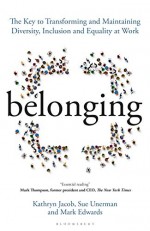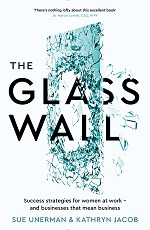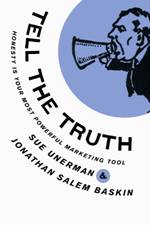 “No idea is a bad idea” is one of the sacred rules of brainstorming.
“No idea is a bad idea” is one of the sacred rules of brainstorming.
The concept is based on the theory that ideas are like young plants. Rain too hard on them and they will wilt away. Don’t criticise. Warm them in the greenhouse of sunshine approval. This is one of the founding rules laid down for brainstorms by BBDO’s Alex Osborn when he coined the term in 1948 and is still widely employed today, (together with the other rules which are to emphasise quantity of ideas, to allow freewheeling thinking and to build on the ideas of others). While other techniques for the sessions will vary, these rules usually prevail.
This is despite a relatively little known study conducted as long ago as 2000 which seems to prove the opposite of what’s normal. Criticism does not deter ideas. In fact it encourages it.
In an academic experiment “The liberating role of conflict in group creativity “ by Charlan Nemeth, individuals in small groups were given the problem of solving traffic congestion. The research was conducted in San Francisco and Paris. The rules were the same as usual except for a test set of groups who were told to feel free to debate and even to criticise each other’s ideas.
Most creativity coaches and moderators would predict that allowing criticism and challenges would be the death of ideas. In fact, in these carefully controlled conditions, the reverse was true. Allowing debate led to more ideas, significantly more.
These results may seem surprising. However, given these two requirements for creativity, they are no surprise.
The first requirement is diversity of thinking. The second is authenticity, to be yourself.
If people in the brainstorm are similar in how they think rather than diverse, which may well make for an easier, perhaps a happier, session, then there will be fewer different ideas.
Furthermore, if the people in the brainstorm are not similar in how they think, but have been asked to follow a rule that they must not debate or criticise, then they may well be self-censoring to ensure a happy and obedient session. The effort required in worrying about not offending others by a spontaneous negative reaction to ideas can suppress creativity. This doesn’t mean criticism is required, just that people don’t have to stop themselves being critical. The “don’t rain on ideas” rule can be replaced by a “don’t take criticism personally“ mandate. Everyone should be free to be themselves and to say what they really think, with courtesy and kindness, but also with the courage of their convictions.
Think hard before your next idea generation session. Is a required outcome and priority that people should have a good time? If so then definitely keep to the standard rules. If there a real need for creativity and a diverse range of solutions then it’s definitely worth breaking the “no idea is a bad idea” rule.
The author of the study says that she believes that disagreements open the mind: “Faced with an alternative conception of reality and a different way of thinking..we actually search for and consider more options”.
More options, more ideas, more creativity, more chance of truly transformational action.



Entering awards? Here’s one category you wish you could enter:
Monday, February 18th, 2019Awards season is on us again (is it ever not these days?), with entries due for Campaign Media, Marketing Soc, Thinkbox, Outdoor, Festival of Media and more.
Enormous effort will be made to ensure that each brilliant idea is explained properly, and the results will be polished up to look as good as possible. It’s important to shine your best work so that it can be judged by a jury of the finest minds in media and marketing.
Effectiveness rules of course, and a good story about customer insight and use of data helps to make the work stand out.
There’s very strict rules in place to ensure that everything that is claimed to have happened did in fact take place. This is right of course and proper.
What if, though reality was only optional? I’d like to suggest another category for the awards. The If Only category. In this category there’s no need for the work actually to have taken place. It need not have run, it can just be a really good idea, that probably would have run if only there’d been enough appetite for risk/the budget hadn’t been cut.
The award would be judged on the basis of how strong the logic was. A brilliant yet untapped consumer insight would kick off the entry. The execution must be innovative, never done before (but technically possible). Full mock-ups of this would be required and a robust yet speculative assessment of return on investment.
Judges would be untroubled by grim reality and expect to be entertained and wowed.
A bit like the idea of the Olympics on steroids. Jeremy Clarkson once wrote: “I find myself hoping Russia reacts (to a proposed ban) by setting up an alternative Olympic Games where anything goes.. on cable TV, Olympians on drugs”.
Stoned hurdling, drunk skiing, 400 metres on drugs were all part of his vision. And as Russia’s Alexander Zubkov receives a 2 year ban for doping (appeal pending) let’s add dazed bob sleighing. Might this make for a slightly more interesting sporting event than some events are (to the unexpert eye) when viewed straight?
I certainly would not ever advocate writing any kind of award entry on drugs of any kind, but I can see that allowing thinkers to escape from reality might lead to some interesting ideas being given oxygen. Ideas that are currently stifled by economic uncertainty or unimaginative selling. Most experienced planners would admit to ideas that “got away” like the imaginary big fish from the expert angler. Even those planners who’ve converted great ideas to reality will have others that have sat on the back burner for years. (At MediaCom we’ve had an annual internal training scheme for many years that works a bit like this, as some external schemes do. Everyone in the agency and media owner delegates does a virtual “pitch” for a brief. And part of the brief is to push the boundaries, maybe further than everyone can in the day job. To think “what if”. I always enjoy and learn much from this annual competition.)
The What if awards. They’d be fun, they’d be frivolous (and in grim times that’s not necessarily a bad thing), and we might just learn a lot from them.
Posted in MediaComment | No Comments »